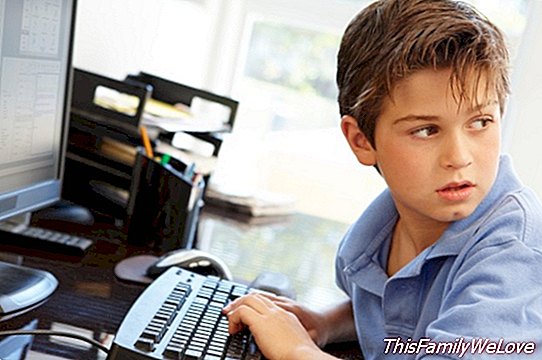The dangers of social networks for young people

The The main risk young people face in front of the social networks is that their parents do not know how to inculcate a good use to them, that happens to form the children in the traditional values and to teach them that they must also be present in the social networks. But in order to carry out this adaptation of the educational message, it is essential that the elderly get up to speed in this area.
It is a task of parents and educators to teach the minors in their charge to configure the visibility of their personal data on social networks, making them value both their own privacy and that of others.
The websites of each social network usually include a link to the page where the user is indicated how adequately configure the privacy of your personal data. The problem is that most of the users never consult this page and do not care about privacy, which is very good for those who want to harm. There is no way to ensure in a social network that whoever contacts us is who they say they are, so we are in permanent risk of identity theft.
On the one hand, someone can usurp the identity of a person we know to deceive us on social networks. In addition, the Internet naturally protects the anonymity of those who operate in it, so the commission of crimes could go unpunished due to the difficulty of identifying those who commit them. If there is any abuse, it is essential to report it as soon as possible so that the State security bodies can prosecute the offender.
What data are shared in social networks
It is important to be clear that there is nothing free on the Internet. Therefore, if they are not the customer, they may be the product. Normally personal and family data are shared, images through webcam, photos, current or future location, content of private conversations ... All this is very dangerous, because they leave our children defenseless and vulnerable, even to the whole family.
In addition, anyone can access this data, both their network friends and outsiders - the so-called hackers- they have the daily information of our children at hand. That of "only my photos can see my friends" is false. It does not mean that our children lie to us to keep us calm, probably even they are not aware that anyone can know who they are or who they are with. In the same way, they should not publish (upload to the network) by impulse because the content on the Internet is very difficult to remove, and it can damage their reputation. They have to think if they would be willing to have that same content hung, for example, from all the street lamps in the neighborhood. They will understand the simile well.
Relations with strangers in social networks
This part is very delicate. One of the attractions of social networks is meeting new people, but this carries many risks. If we allow our children to register in a social network, it would be good to sit down with them and explain that making new friends over the Internet is dangerous. They already see this as a real danger, as recent studies have shown, but they will only be careful in situations where an "unknown sir", or any unusual profile, wants to be their friend. Our duty is to warn you that there is a phenomenon called grooming, where some people pretend to be people they are not. Therefore, they should not accept any request from any person they do not know, even if they are apparently the same age or tell them that they are going to their own school.
Harassment through social networks
Cyberbullying is a behavior that consists of humiliating, threatening or harassing other peers, which takes place among children of the same environment. The seriousness of this behavior is that the damage is collected in the comments of social networks so that the derision is prolonged over time. In addition, the anonymity provided by the Internet, together with the lack of direct perception of the damage caused and the adoption of imaginary roles facilitated by the network, make it more difficult for parents or guardians to discover this situation in order to solve it and demand responsibility from the person concerned.
Something very common, and that seems less serious to them, is the so-called cyberbaiting. What this phenomenon implies is that, instead of harassing a partner, a teacher is harassed and humiliated. They can be a game in which they do not do anything wrong, because the teacher is an older person and not a vulnerable child, and it is most likely that our son does not initiate it, but we must explain that simply by participating they are exposed to criminal consequences, if applicable.
Sara Pérez López
It may interest you:
- Changes in the parents of the 21st century
- Digital natives, a different generation of children
- Parental control in social networks
- Gossip, a social phenomenon ... why are we gossips?




